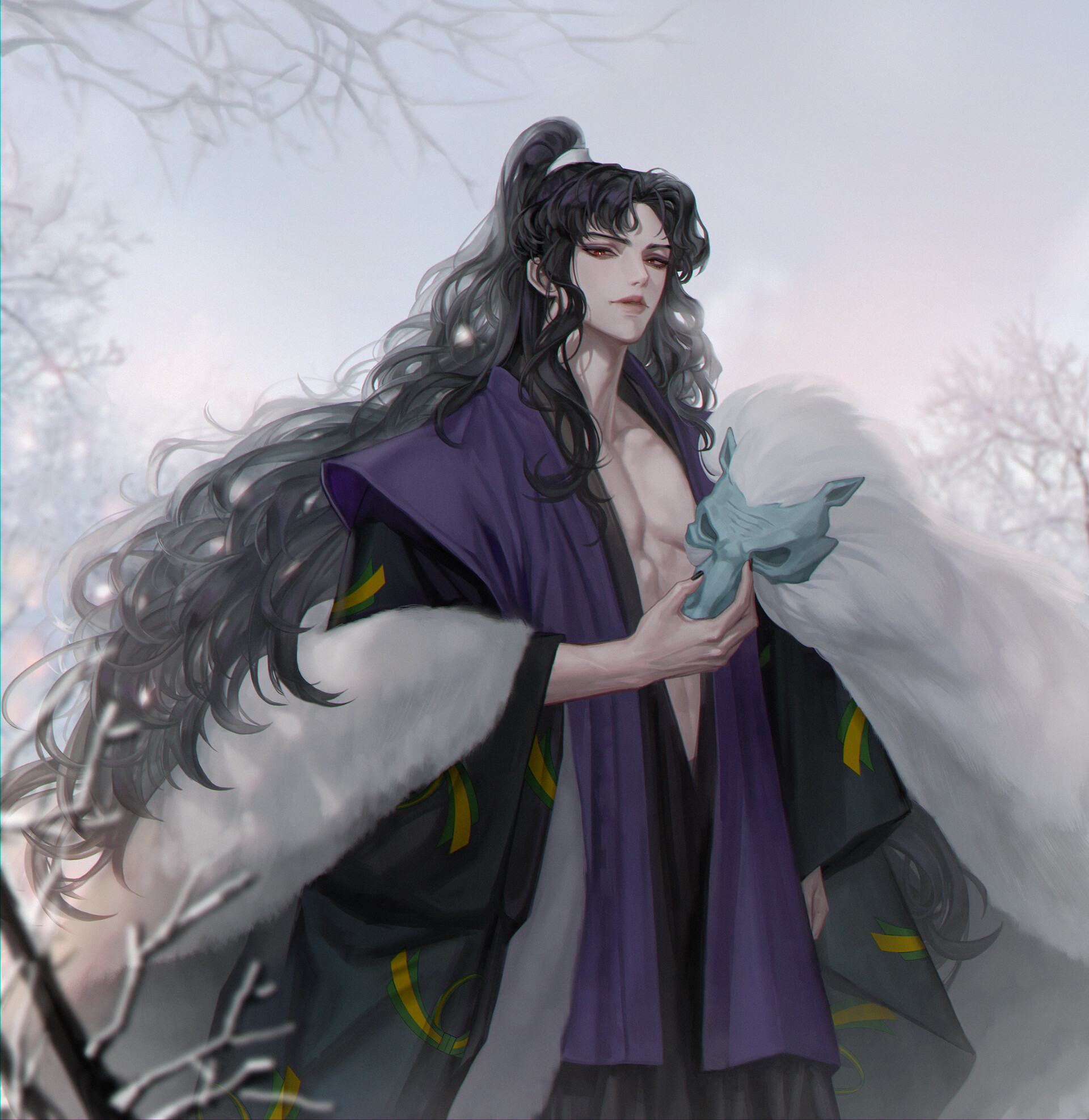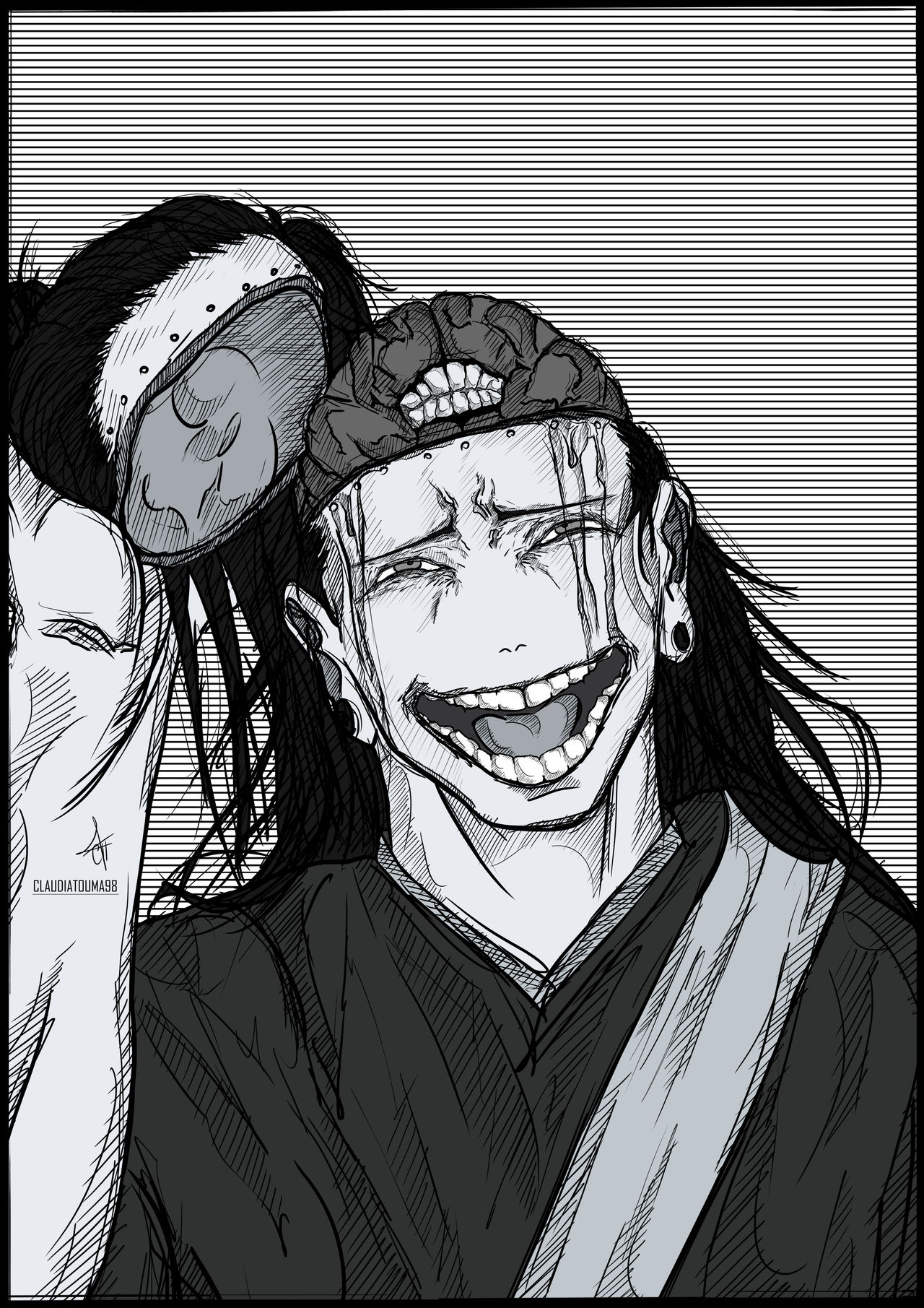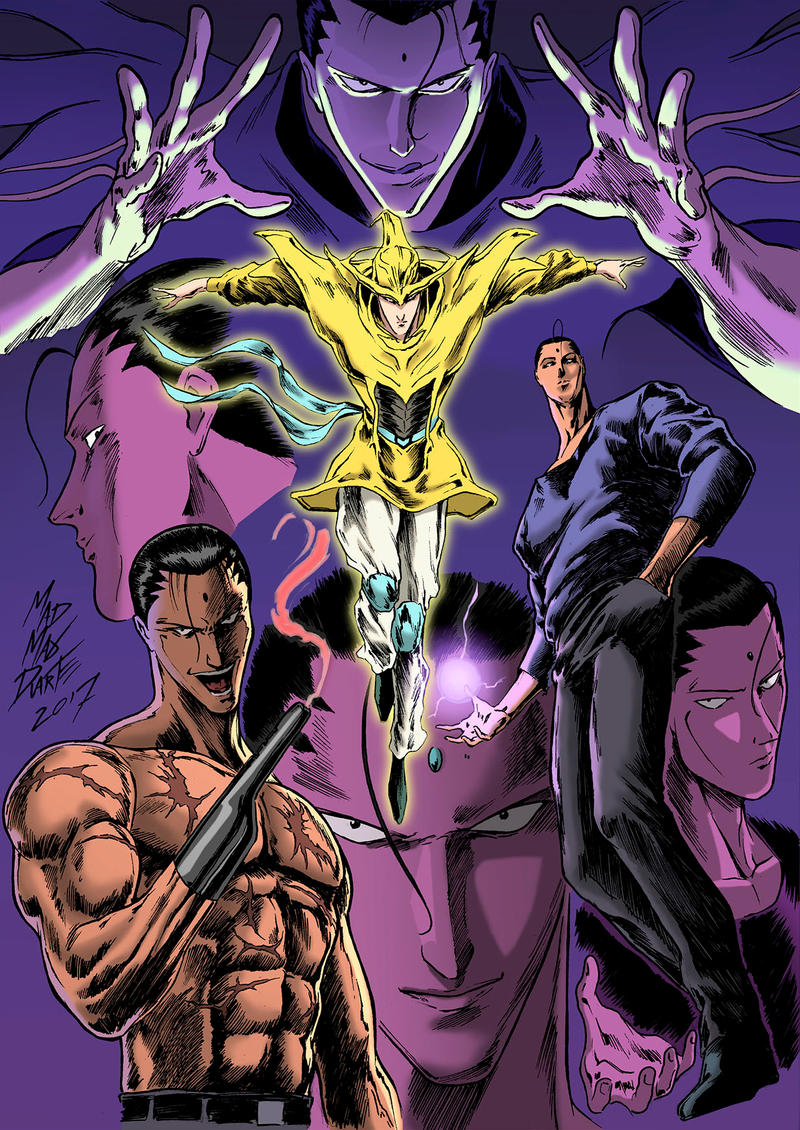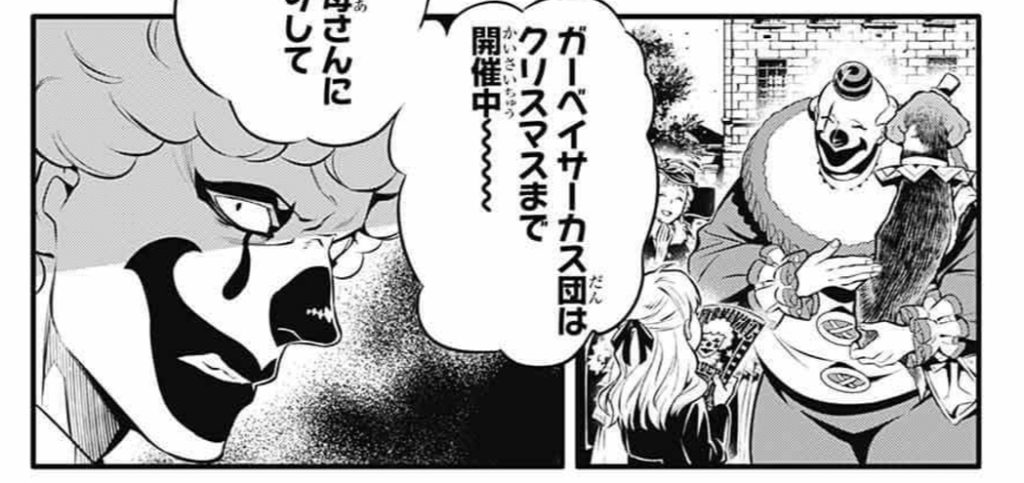IMPORTANT: THIS TIME THERE WILL BE NO FIGHTS. YOU WILL SIMPLY VOTE FOR YOUR TOP 6 CHOICES HERE. PLEASE TRY TO USE UP ALL 6 VOTES. THANKS.
THE BRACKET
Asakura Hao – Shaman King
VS
Makaku – Battle Angel Alita
VS
Hilmes – Arslan Senki
VS
Echidna – Re:Zero
VS
Naraku – Inuyasha
VS
Major – Hellsing
VS
All for One – My Hero Academia
VS
Kenjaku – Jujutsu Kaisen
VS
Shinobu Sensui – Yu Yu Hakusho
VS
Gendou Ikari – Neon Genesis Evangelion
VS
Father – Fullmetal Alchemist
VS
Road Kamelot – D.Gray-Man
THE BRACKET
Asakura Hao – Shaman King
Asakura Hao is the series’ ultimate nihilist—a reincarnated spirit with immense spiritual power and a resolute conviction that humanity is doomed to self-destruction. He doesn't simply attack; he fully intends to replace humanity with his own spiritual race, believing that his rule will create order. His ability to casually dismiss human life reflects a cold intelligence and a terrifying belief in his own moral superiority.
Despite his destructive goals, Hao is magnetic and inspiring. He doesn’t rely solely on intimidation; instead, he draws followers through his charisma, vision, and profound spiritual insights. His quiet confidence and philosophical elevation of his own evil make him more disquieting than a bomb-throwing anarchist—his malevolence feels almost divine.
Hao’s arc culminates in a confrontation not just of spiritual power, but of ideology. Is humanity worth saving? Hao forces his opponents—and the audience—to confront uncomfortable questions. His villainy is not dramatic chaos, but calculated inevitability, grounded in hubris and compassion twisted into dominion.

Despite his destructive goals, Hao is magnetic and inspiring. He doesn’t rely solely on intimidation; instead, he draws followers through his charisma, vision, and profound spiritual insights. His quiet confidence and philosophical elevation of his own evil make him more disquieting than a bomb-throwing anarchist—his malevolence feels almost divine.
Hao’s arc culminates in a confrontation not just of spiritual power, but of ideology. Is humanity worth saving? Hao forces his opponents—and the audience—to confront uncomfortable questions. His villainy is not dramatic chaos, but calculated inevitability, grounded in hubris and compassion twisted into dominion.

VS
Makaku – Battle Angel Alita
Makaku is fear made visible in Battle Angel Alita. A cyborg transformed into a monstrous predator, his visage—a grotesque fusion of salvage and weaponry—masks a violent psychology. He stalks the dystopian alleys of Iron City, driven by instinct and fueled by the desperation of a marginalized existence. His violence is visceral and impulsive: he kills for survival, for defiance, and for twisted fulfillment.
There’s a tragic underpinning to his brutality. Makaku isn’t a schemer or villain with lofty goals—he’s a byproduct of a cruel system. Prior to his transformation, he was human, discarded, forced into a life of endless bloodshed. His rampage is both a rebellion and a lament, a byproduct of poverty and corruption. In facing Alita, his downfall becomes a moral turning point, prompting pity alongside relief.
His legacy lingers in the echoes of his violence. Makaku forces the population—and readers—to confront the unintended consequences of extreme inequality. His danger lies in what he represents: a broken world reflecting its own failures, creating monsters in its own streets.

There’s a tragic underpinning to his brutality. Makaku isn’t a schemer or villain with lofty goals—he’s a byproduct of a cruel system. Prior to his transformation, he was human, discarded, forced into a life of endless bloodshed. His rampage is both a rebellion and a lament, a byproduct of poverty and corruption. In facing Alita, his downfall becomes a moral turning point, prompting pity alongside relief.
His legacy lingers in the echoes of his violence. Makaku forces the population—and readers—to confront the unintended consequences of extreme inequality. His danger lies in what he represents: a broken world reflecting its own failures, creating monsters in its own streets.

VS
Hilmes – Arslan Senki
Hilmes, Arslan’s half-brother, embodies treachery cloaked in noble blood. Charming yet cold, he masks his true ambitions behind loyalty and kinship. His brilliance lies in his ability to manipulate—turning generals against each other, sowing discord, and claiming power step by step. He plots behind the throne’s curtain, waiting for the perfect moment to strike.
His most chilling act is orchestrating the destruction of his own capital and bloodline. He abandons nobility for outright regicide, rationalizing atrocity as necessary for his vision. His emotional void stands out: he uses intimacy—and even pity—as tools, never genuine feeling. Seeing Hilmes work, you realize that trust in politics can be fatal.
Hilmes’ danger is not just military, but existential. In confronting him, Arslan doesn’t just wage war—he must question the nature of leadership, lineage, and identity. Hilmes stands as a devil in borrowed robes, proving that sometimes the closest relative is the deadliest enemy.

His most chilling act is orchestrating the destruction of his own capital and bloodline. He abandons nobility for outright regicide, rationalizing atrocity as necessary for his vision. His emotional void stands out: he uses intimacy—and even pity—as tools, never genuine feeling. Seeing Hilmes work, you realize that trust in politics can be fatal.
Hilmes’ danger is not just military, but existential. In confronting him, Arslan doesn’t just wage war—he must question the nature of leadership, lineage, and identity. Hilmes stands as a devil in borrowed robes, proving that sometimes the closest relative is the deadliest enemy.

VS
Echidna – Re:Zero
Echidna, the Witch of Greed, is the embodiment of intellectual menace in Re:Zero. With access to forbidden archives and esoteric secrets, she initially appears as an enigmatic dream—but quickly reveals herself to be a cunning manipulator. She entices Subaru with cryptic promises and shared curiosity, pushing him into emotional duress to test his resolve.
Her power lies in psychological offense rather than brute force. Echidna uses kindness and understanding as weapons, probing Subaru’s deepest anxieties with clinical precision. Her “games” amount to slow psychological torture masquerading as mentorship. She watches him suffer, not through hatred, but detached intellectual interest.
Echidna’s villainy thrives on reflection. She isn’t cruel—she is inquisitive to a fault, asking questions no one else dares to. In her, Re:Zero explores the terror of truth that refuses to be comforting. She isn’t death or magic—she’s the quiet erosion of self, leaving our hero fragmented and more human in his failures.

Her power lies in psychological offense rather than brute force. Echidna uses kindness and understanding as weapons, probing Subaru’s deepest anxieties with clinical precision. Her “games” amount to slow psychological torture masquerading as mentorship. She watches him suffer, not through hatred, but detached intellectual interest.
Echidna’s villainy thrives on reflection. She isn’t cruel—she is inquisitive to a fault, asking questions no one else dares to. In her, Re:Zero explores the terror of truth that refuses to be comforting. She isn’t death or magic—she’s the quiet erosion of self, leaving our hero fragmented and more human in his failures.

VS
Naraku – Inuyasha
Naraku is Inuyasha’s archetype of crafted evil—a villain born from human sin, parasitic and patient. Once a small bandit, he becomes a half-demon after gathering human souls, using them to create a monstrous crystal body. From then on, he orchestrates chaos: manipulating Kagome’s feelings, slaying friends, and pushing Inuyasha and his allies to constant war.
What makes him enduring is his cunning. Naraku rarely fights alone; he uses deceit, illusions, and puppetry to do it for him. He infiltrates, corrupts, and destroys from within, thriving on gradual ruin. He corrupts pure souls, warps innocent intentions, and preys on longing—revealing evil born not from hate, but from sadistic calculation.
His downfall is as inevitable as the tension he’s built. Each victory is hollow, each fluctuation of loyalty tainted by his lies. He stands as the living proof that had evil taken form, it would wear a friendly face—trusting misery wrapped in charm.

What makes him enduring is his cunning. Naraku rarely fights alone; he uses deceit, illusions, and puppetry to do it for him. He infiltrates, corrupts, and destroys from within, thriving on gradual ruin. He corrupts pure souls, warps innocent intentions, and preys on longing—revealing evil born not from hate, but from sadistic calculation.
His downfall is as inevitable as the tension he’s built. Each victory is hollow, each fluctuation of loyalty tainted by his lies. He stands as the living proof that had evil taken form, it would wear a friendly face—trusting misery wrapped in charm.

VS
Major – Hellsing
The Major is a paradoxical villain: disciplined officer, master tactician, and a rabid warmonger. He is not ugly chaos or ravenous beast—he is precision incarnate, commanding an army of psychic vampires called the Millennium Organization. His goal: reignite a world war to birth a “visionary conflict” that will elevate humanity through shared insanity.
The Major’s brilliance lies in detail. He crafts entire theaters of combat, with doctrines and eager soldiers, all in service of utter victory through violence. He adores war with pathological devotion—not for glory, but for absolute clarity that he believes only violence can bring. His mania is clinical, not emotional.
In the apocalypse he invokes, the Major stands as a revelation: evil is not always petty. Sometimes it is refined architecture. In confronting him, Hellsing is forced to face not just vampires and Nazis, but a fundamental question—can humanity’s capacity for bloodshed ever feed the soul?

The Major’s brilliance lies in detail. He crafts entire theaters of combat, with doctrines and eager soldiers, all in service of utter victory through violence. He adores war with pathological devotion—not for glory, but for absolute clarity that he believes only violence can bring. His mania is clinical, not emotional.
In the apocalypse he invokes, the Major stands as a revelation: evil is not always petty. Sometimes it is refined architecture. In confronting him, Hellsing is forced to face not just vampires and Nazis, but a fundamental question—can humanity’s capacity for bloodshed ever feed the soul?

VS
All for One – My Hero Academia
All for One is the grandfather of evil in the My Hero Academia universe—a man who wields countless quirks as tools of subjugation. He built a secret empire through manipulation, ideology, and illegal surgeries, turning aspiring heroes into villains, and heroes into symbols of control. He is the dark architect of the world’s imbalance—and arguably the most dangerous quirk-user alive.
His power lies not in brute force, but in dominion. Armed with charisma and quirk mimicry, he orchestrates global schemes: coups, psychological broodings, and national terror. He raises All Might and Tomura with the same hand, shaping them as pieces in his ideological puzzle. His conviction is that might equals right—and right must be taken by force.
All for One is the mirror-image of heroism. Where they inspire, he corrupts. Where they uplift, he dismantles. He isn’t just a villain; he’s an argument—about who should hold power, and what price we pay for peace. And in that shadow, heroism has never felt more fragile.

His power lies not in brute force, but in dominion. Armed with charisma and quirk mimicry, he orchestrates global schemes: coups, psychological broodings, and national terror. He raises All Might and Tomura with the same hand, shaping them as pieces in his ideological puzzle. His conviction is that might equals right—and right must be taken by force.
All for One is the mirror-image of heroism. Where they inspire, he corrupts. Where they uplift, he dismantles. He isn’t just a villain; he’s an argument—about who should hold power, and what price we pay for peace. And in that shadow, heroism has never felt more fragile.

VS
Kenjaku – Jujutsu Kaisen
Kenjaku, formerly known as Noritoshi Kamo, is the puppeteer behind centuries of tragedy in the Jujutsu Kaisen universe. Channeling curse energy through body switching and forbidden research, he orchestrates disasters like the Shinjuku Incident and manipulates both sorcerers and curses—constantly engineering chaos from the shadows.
What makes him terrifying is his patient, perfectionist villainy. He doesn’t seek recognition. He swaps bodies, manipulates events across epochs, and cultivates metacurses like Sukuna. He’s building a future apocalypse by design, not accident. His intelligence and endurance make him appear unstoppable.
Kenjaku’s villainy is slow-burning and earth-shattering. Unlike chaotic curses, he is a constant: meticulous, relentless, and ideologically driven. His final form: an immortal gardener of destruction, orchestrating humanity’s fall through design. In JJK, he is the axis around which destiny turns.

What makes him terrifying is his patient, perfectionist villainy. He doesn’t seek recognition. He swaps bodies, manipulates events across epochs, and cultivates metacurses like Sukuna. He’s building a future apocalypse by design, not accident. His intelligence and endurance make him appear unstoppable.
Kenjaku’s villainy is slow-burning and earth-shattering. Unlike chaotic curses, he is a constant: meticulous, relentless, and ideologically driven. His final form: an immortal gardener of destruction, orchestrating humanity’s fall through design. In JJK, he is the axis around which destiny turns.

VS
Shinobu Sensui – Yu Yu Hakusho
Shinobu Sensui redefines evil in Yu Yu Hakusho—no longer a simple demon, but a conflicted man broken by trauma. Formerly a noble Spirit Detective, he was driven insane after witnessing a demon commit a grotesque act. He forms the Seven Horrors, aiming to erase the boundary between humans and demons with violent purpose.
His greatest horror is moral collapse: Sensui struggles with the emptiness of justice and the hypocrisy of humanity he once vowed to protect. He believes true peace comes through fearing death, and he’s willing to annihilate humanity to achieve it. His absolutely black heart lies not in carnage, but in unity—forced through blood.
Fighting Sensui isn’t just physical—it’s spiritual warfare. Yusuke confronts not just a villain, but the existential void of hypocritical justice, the fragility of belief, and the danger of blending light with shadow. Sensui ends as a tragic testament to how a hero can become someone’s ultimate nightmare.

His greatest horror is moral collapse: Sensui struggles with the emptiness of justice and the hypocrisy of humanity he once vowed to protect. He believes true peace comes through fearing death, and he’s willing to annihilate humanity to achieve it. His absolutely black heart lies not in carnage, but in unity—forced through blood.
Fighting Sensui isn’t just physical—it’s spiritual warfare. Yusuke confronts not just a villain, but the existential void of hypocritical justice, the fragility of belief, and the danger of blending light with shadow. Sensui ends as a tragic testament to how a hero can become someone’s ultimate nightmare.

VS
Gendou Ikari – Neon Genesis Evangelion
Gendou Ikari is the unnamed architect of apocalypse in Neon Genesis Evangelion. He is defined by manipulation, devotion to a goal, and the absolute willingness to sacrifice everything—even his son—to achieve it. In a world where angels fall, Gendou trades parenthood for godhood, using Shinji as a key in his intricate plan for human evolution.
What makes him horrifying is his emotional coldness. Gendou builds an empire fueled by secrecy, emotional abuse, and existential ambition. His devotion to Lilith and Yui Ikari transcends humanity, creating a brutal version of love: love without care, without comfort, and without sanity.
Gendou’s trajectory is a horror rooted in intimacy corrupted. In every push, pull, and cruel command, he asks—what is a father? What is betrayal? Gendou is less a monster and more a mirror: of the cold ambition we carry for those we should love most.

What makes him horrifying is his emotional coldness. Gendou builds an empire fueled by secrecy, emotional abuse, and existential ambition. His devotion to Lilith and Yui Ikari transcends humanity, creating a brutal version of love: love without care, without comfort, and without sanity.
Gendou’s trajectory is a horror rooted in intimacy corrupted. In every push, pull, and cruel command, he asks—what is a father? What is betrayal? Gendou is less a monster and more a mirror: of the cold ambition we carry for those we should love most.

VS
Father – Fullmetal Alchemist
Father, the Homunculi’s progenitor, begins life as a droplet of philosopher’s stone hidden beneath a church. As he gains body and purpose, he treats humans as material—tools, resources, fuel. His ambition is divine: to absorb God, reshape reality, and transcend suffering born of the Creator himself.
His power is near absolute: combining alchemy with immortality, building homunculi armies, and manipulating nations. Yet beneath that, his true villainy lies in his ideology. He seeks to erase human imperfection through forced symmetry—even as his own arrogance poisons him. He believes perfection deserves to be mandated.
Father’s fall is profound, a cosmic tragedy reflected in ground-level horror. His obstacle course of genocide and betrayal forces the protagonists—and audience—to confront darker truths: the power entwined with creation, and the limits of seeking divine control.

His power is near absolute: combining alchemy with immortality, building homunculi armies, and manipulating nations. Yet beneath that, his true villainy lies in his ideology. He seeks to erase human imperfection through forced symmetry—even as his own arrogance poisons him. He believes perfection deserves to be mandated.
Father’s fall is profound, a cosmic tragedy reflected in ground-level horror. His obstacle course of genocide and betrayal forces the protagonists—and audience—to confront darker truths: the power entwined with creation, and the limits of seeking divine control.

VS
Road Kamelot – D.Gray-Man
Road Kamelot is chaos made flesh. As the vessel of the Noah named Road, she navigates the boundaries between humanity and curse with mercurial unpredictability. She can seduce as easily as she can murder, and her shapeshifting nature reflects inherited cruelty and emotional instability.
What makes her truly dangerous is duplicity. She submits to Cross Marian, flirts with Allen Walker, and grabs trust like a spider weaving a web. She delights in emotional whiplash—mutability for control. Her identity runs deeper than appearance; it’s a living chaos.
Road is the narrative’s wild card, dragging the story into uncertainty. She embodies how agendas can hide in masks—and how evil isn’t just a monster outside, but a presence inside relationships and loyalties, turning trust into ash.

What makes her truly dangerous is duplicity. She submits to Cross Marian, flirts with Allen Walker, and grabs trust like a spider weaving a web. She delights in emotional whiplash—mutability for control. Her identity runs deeper than appearance; it’s a living chaos.
Road is the narrative’s wild card, dragging the story into uncertainty. She embodies how agendas can hide in masks—and how evil isn’t just a monster outside, but a presence inside relationships and loyalties, turning trust into ash.














